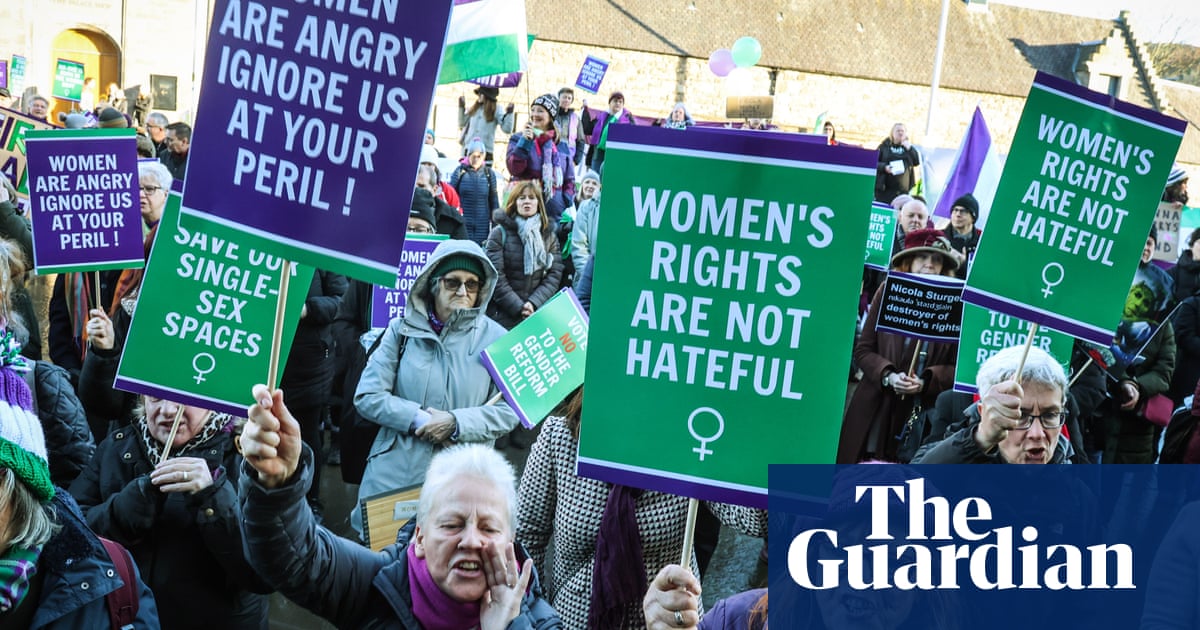The Scottish government has been given a deadline to implement the UK supreme court’s ruling on biological sex across all public bodies or face further legal challenges.
Sex Matters, the UK-wide gender-critical campaign group, has threatened legal action in 14 days if ministers continue “intolerable” delays to new policies and guidance required byApril’s landmark rulingthat the legal definition of a woman in the Equality Act 2010 does not include transgender women who hold gender recognition certificates.
The move reflects ongoing frustration among gender-critical campaign groups at what For Women Scotland, who brought the supreme court case,described as “extraordinary pushback”since the unanimous judgment.
Politicians,LGBT+ rights groupsandprominent supportershave raised concerns that the ruling could result in the erosion of rights, privacy and dignity of trans people across the UK.
These fears were increased after equality watchdog the Equality and Human Rights Commission (EHRC) brought out interim advice soon after the judgment which, they said, amounted to a blanket ban on trans people using toilets of their lived gender, which many in the community said effectively excluded them from public spaces.
The ruling has wide-ranging implications for service providers, public bodies and businesses, with the EHRC currently consulting on a revised code of practice that will provide a practical guide on implementation.
However, the Sex Matters letter says the consultation is “not an invitation – particularly to public authorities – to act in a way that is unlawful in the meantime”. Sex Matters intervened in the supreme court case that was brought by For WomenScotlandagainst the Scottish government over a law aimed at improving gender representation on public boards.
Maya Forstater, a founder of Sex Matters, said the supreme court was clear that legal protection for trans people “does not translate into a right to use opposite-sex services”, adding that allowing trans women to use women’s toilets, showers and changing rooms had “created a hostile environment for women”.
Sex Matters is particularly concerned about the Scottish government’s guidance for schools, which encourage teaching staff offer flexible arrangements for young transgender people and states that the use of toilets is governed by social convention rather than law.
The Good Law Project, which is challenging the EHRC’s interim advice in court next month, revealed earlier this week that the commissionappeared to be rolling backon its initial blanket position.
Last weekend, For Women Scotland co-director Susan Smith encouraged individuals to “keep pressure on MSPs and MPs”, and make use of the fighting fund announced by the author and activist JK Rowling to launch their own actions.
Rowling said the fund was “not going to be sharing any details or figures about applications and inquiries, as it’s a private fund, not a fundraising charity, and funding details are strictly confidential”.
A Scottish government spokesperson said that they would respond to the letter in due course.
They said: “The Scottish government has been clear that we accept the supreme court judgment. We are reviewing policies, guidance and legislation potentially impacted by the judgment.”
